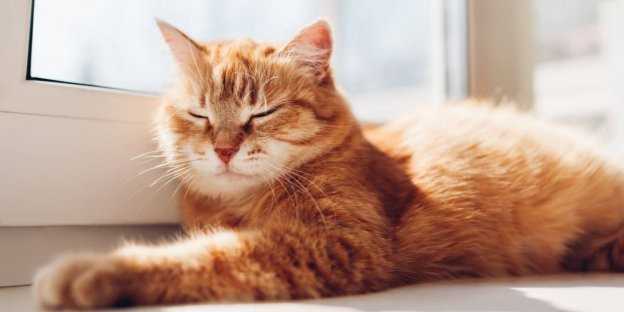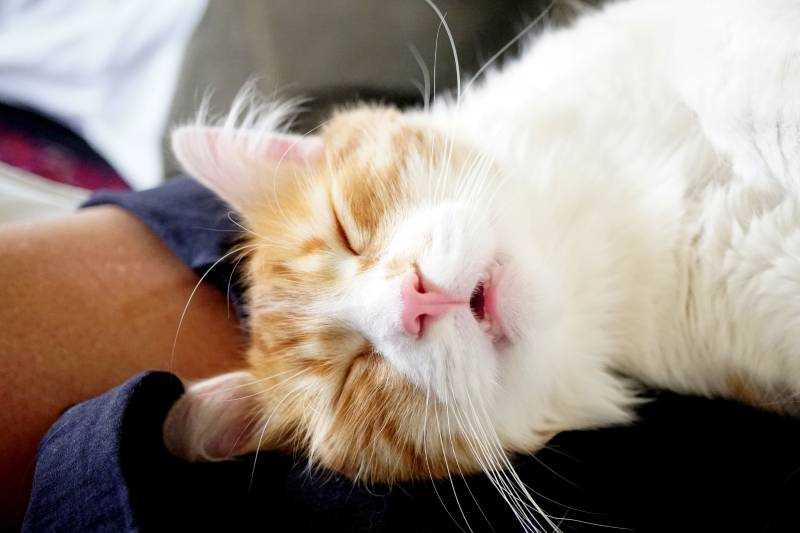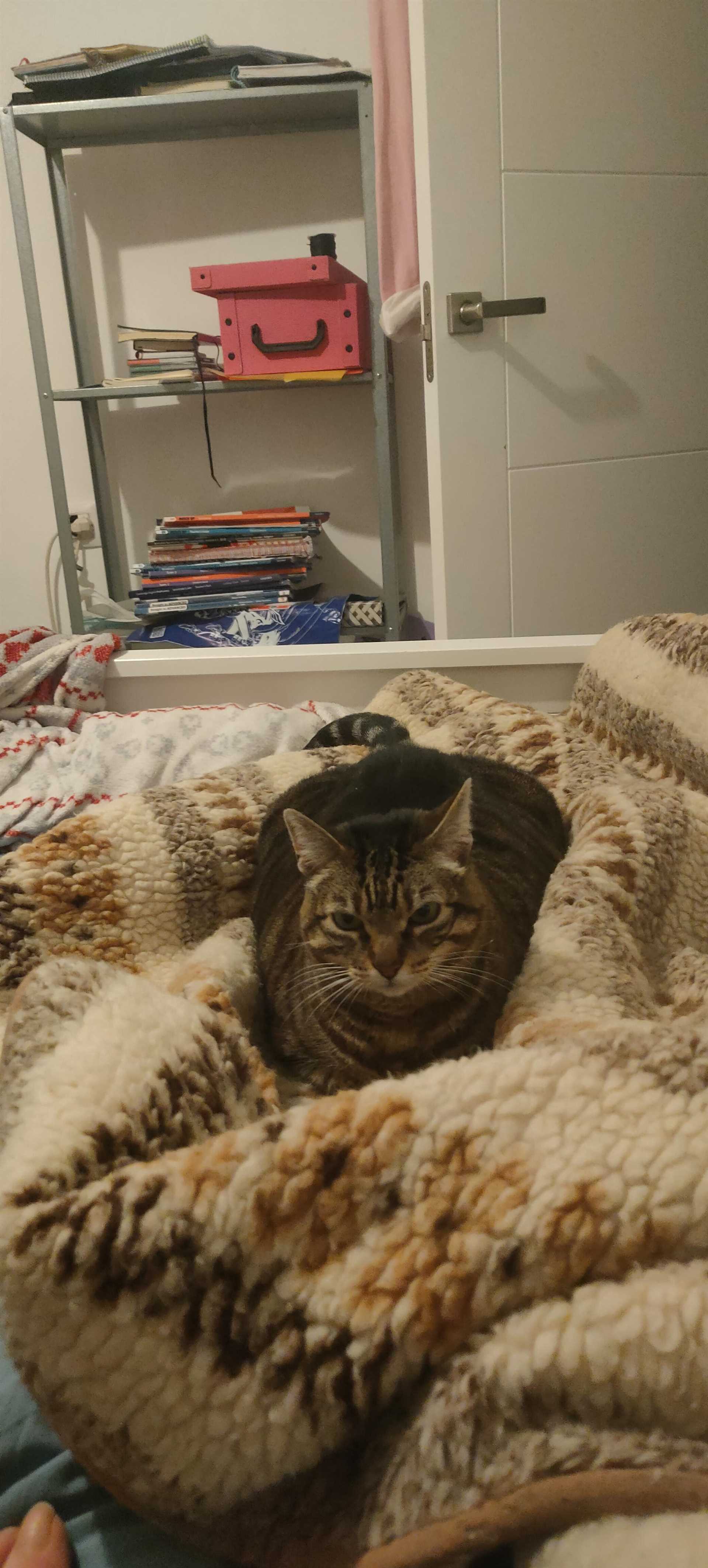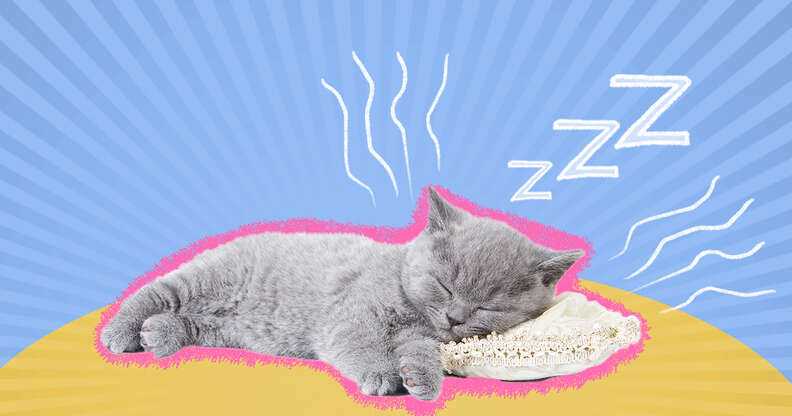One of the most frequent questions I get from my human is about my nighttime sounds. If you’re wondering about the reason behind the thunderous sounds I make while resting, it often boils down to my unique anatomy. As a Scottish Fold, my distinct facial structure can contribute to the amplification of those nighttime noises.
Another factor to consider is my sleeping position. When I curl up in my favorite spot, the way my airways are positioned can lead to those deep, resonating breaths. It’s not just me being noisy; it’s simply how I find comfort while snoozing.
Of course, if the volume increases or changes suddenly, it might be time for a check-up. Obesity, allergies, or respiratory issues can also play a role in these sounds. Keeping an eye on my health is vital, so regular vet visits are a must for my well-being.
Finally, don’t forget about the environment. If my space is filled with dust or allergens, that could also contribute to my vocalizations during sleep. Maintaining a clean and comfortable home helps me rest easy and soundly.
Understanding My Noisy Nights
Sometimes, my nighttime sounds can be quite a spectacle! A few reasons contribute to my raucous nighttime habits. First, the position I choose to sleep in can greatly affect how sound travels. When I curl up tightly or flop onto my back, the airway can become slightly obstructed, leading to those loud vibrations while I rest.
Health Factors to Consider

Occasionally, certain health aspects might amplify my vocalizations during slumber. If I have allergies or respiratory issues, they can cause congestion, which leads to more pronounced sounds. Regular check-ups with my human ensure these are monitored, keeping my health in check and reducing any potential disturbances.
Weight and Age Influence

Weight plays a role as well; extra fluff might constrict my airway more than usual, leading to amplified sounds. Additionally, as I age, my resting habits change, and I may become more vocal during sleep. Maintaining a healthy lifestyle with playtime and proper diet helps keep my nighttime sounds in check!
Understanding the Anatomy of Feline Nocturnal Sounds
My nasal structure plays a significant role in the noises I make while resting. The unique shape of my skull and the arrangement of my airways contribute to the sounds that may emerge during sleep. The soft palate, located at the back of my mouth, can vibrate as air passes through, creating those distinct sounds.
Additionally, my respiratory system, which includes various passages and tissues, can influence these vocalizations. If I’m in a deep sleep, my throat muscles relax considerably, leading to a higher chance of producing sound as air flows over the relaxed tissues.
The position I choose to curl up in can also impact the volume of my nighttime symphony. For instance, lying on my back may constrict my airways slightly, amplifying the sounds. In contrast, a more upright position can reduce the intensity of these nighttime noises.
Moreover, certain health factors such as allergies or respiratory conditions can contribute to increased sound production. Keeping an eye on my breathing patterns can help identify if there’s a need for a check-up with the human vet.
Understanding these anatomical aspects helps my humans appreciate the natural sounds I produce while in dreamland. It’s just one of the charming quirks of being a feline, after all!
Common Health Issues Associated with Loud Snoring
It’s crucial to monitor certain health conditions if my nightly rumblings seem excessive. Various underlying issues may be at play, including:
- Obesity: Extra weight can lead to airway obstruction, causing noisy breathing. Maintaining a balanced diet helps manage weight.
- Respiratory Infections: Viral or bacterial infections can irritate airways, leading to congestion and resultant sounds. Regular vet check-ups are essential for early detection.
- Allergies: Allergens like pollen or dust can provoke inflammation, contributing to noisy breathing patterns. Identifying and minimizing exposure to triggers can alleviate symptoms.
- Dental Issues: Oral health plays a role in overall well-being. Infections or dental disease can lead to pain and changes in breathing patterns. Routine dental care is vital.
- Nasal Polyps: Growths in the nasal passages can obstruct airflow, causing unusual sounds. If persistent, a veterinary examination is necessary for proper diagnosis and treatment.
Recognizing these potential health issues and seeking veterinary advice ensures optimal health. Regular check-ups keep me in tip-top shape and can help prevent future concerns. Prioritizing wellness is key to enjoying peaceful slumber.
When to Consult a Veterinarian About Your Feline’s Noises

If the sounds coming from my slumbering form seem unusual or disruptive, it might be time to seek advice from a vet. Pay attention to accompanying symptoms like difficulty breathing, excessive coughing, or lethargy. If my appetite decreases or I show signs of distress while resting, don’t hesitate to reach out for professional help.
Signs Indicating a Health Concern

Any sudden change in auditory patterns should raise a flag. If I previously had peaceful nights and suddenly start producing more pronounced sounds, it’s worth a chat with a vet. Look for signs of allergies, obstructions, or infections. Weight changes or unusual behaviors during waking hours can also signal that something isn’t right.
Monitoring and Record-Keeping
Documenting my sleeping habits and any peculiarities can be beneficial for the vet. Note the frequency, duration, and any patterns observed. This information can help in diagnosing potential issues. If you ever need to tackle problems like odors in your home, check out this guide on how to get cat spray smell out of couch.
FAQ:
Why does my cat snore so loudly when sleeping?
Cats, like humans, can snore due to various reasons. One common cause is their sleeping position. If your cat sleeps in a way that restricts airflow, it may snore. Additionally, certain breeds, especially flat-faced ones like Persians and Himalayans, are more prone to snoring due to their anatomical structure. Allergies, obesity, or respiratory issues can also contribute to loud snoring. If your cat’s snoring is accompanied by other concerning symptoms, a visit to the veterinarian might be necessary.
Is loud snoring in cats a sign of a health problem?
Loud snoring can sometimes indicate an underlying health issue, but it’s not always a cause for concern. For example, if your cat is overweight, excess fat can restrict airflow and lead to snoring. Respiratory conditions, such as asthma or allergies, could also be factors. If the snoring is sudden or changes in intensity, or if there are other symptoms like coughing, lethargy, or difficulty breathing, it’s advisable to consult a veterinarian for a thorough examination.
What can I do to help my cat if it snores a lot?
If your cat snores frequently, there are a few steps you can take to help. First, observe your cat’s sleeping position and encourage it to sleep in a more open position that allows for better airflow. Maintaining a healthy weight through a balanced diet and regular exercise can also reduce snoring. Ensuring your home is free of allergens, like dust and pollen, can improve respiratory health. If snoring persists or is accompanied by other symptoms, a veterinarian should evaluate your cat to rule out any serious issues.
One of the most frequent questions I get from my human is about my nighttime sounds. If you’re wondering about the reason behind the thunderous sounds I make while resting, it often boils down to my unique anatomy. As a Scottish Fold, my distinct facial structure can contribute to the amplification of those nighttime noises.
Another factor to consider is my sleeping position. When I curl up in my favorite spot, the way my airways are positioned can lead to those deep, resonating breaths. It’s not just me being noisy; it’s simply how I find comfort while snoozing.
Of course, if the volume increases or changes suddenly, it might be time for a check-up. Obesity, allergies, or respiratory issues can also play a role in these sounds. Keeping an eye on my health is vital, so regular vet visits are a must for my well-being.
Finally, don’t forget about the environment. If my space is filled with dust or allergens, that could also contribute to my vocalizations during sleep. Maintaining a clean and comfortable home helps me rest easy and soundly.
Understanding My Noisy Nights
Sometimes, my nighttime sounds can be quite a spectacle! A few reasons contribute to my raucous nighttime habits. First, the position I choose to sleep in can greatly affect how sound travels. When I curl up tightly or flop onto my back, the airway can become slightly obstructed, leading to those loud vibrations while I rest.
Health Factors to Consider

Occasionally, certain health aspects might amplify my vocalizations during slumber. If I have allergies or respiratory issues, they can cause congestion, which leads to more pronounced sounds. Regular check-ups with my human ensure these are monitored, keeping my health in check and reducing any potential disturbances.
Weight and Age Influence

Weight plays a role as well; extra fluff might constrict my airway more than usual, leading to amplified sounds. Additionally, as I age, my resting habits change, and I may become more vocal during sleep. Maintaining a healthy lifestyle with playtime and proper diet helps keep my nighttime sounds in check!
Understanding the Anatomy of Feline Nocturnal Sounds
My nasal structure plays a significant role in the noises I make while resting. The unique shape of my skull and the arrangement of my airways contribute to the sounds that may emerge during sleep. The soft palate, located at the back of my mouth, can vibrate as air passes through, creating those distinct sounds.
Additionally, my respiratory system, which includes various passages and tissues, can influence these vocalizations. If I’m in a deep sleep, my throat muscles relax considerably, leading to a higher chance of producing sound as air flows over the relaxed tissues.
The position I choose to curl up in can also impact the volume of my nighttime symphony. For instance, lying on my back may constrict my airways slightly, amplifying the sounds. In contrast, a more upright position can reduce the intensity of these nighttime noises.
Moreover, certain health factors such as allergies or respiratory conditions can contribute to increased sound production. Keeping an eye on my breathing patterns can help identify if there’s a need for a check-up with the human vet.
Understanding these anatomical aspects helps my humans appreciate the natural sounds I produce while in dreamland. It’s just one of the charming quirks of being a feline, after all!
Common Health Issues Associated with Loud Snoring
It’s crucial to monitor certain health conditions if my nightly rumblings seem excessive. Various underlying issues may be at play, including:
- Obesity: Extra weight can lead to airway obstruction, causing noisy breathing. Maintaining a balanced diet helps manage weight.
- Respiratory Infections: Viral or bacterial infections can irritate airways, leading to congestion and resultant sounds. Regular vet check-ups are essential for early detection.
- Allergies: Allergens like pollen or dust can provoke inflammation, contributing to noisy breathing patterns. Identifying and minimizing exposure to triggers can alleviate symptoms.
- Dental Issues: Oral health plays a role in overall well-being. Infections or dental disease can lead to pain and changes in breathing patterns. Routine dental care is vital.
- Nasal Polyps: Growths in the nasal passages can obstruct airflow, causing unusual sounds. If persistent, a veterinary examination is necessary for proper diagnosis and treatment.
Recognizing these potential health issues and seeking veterinary advice ensures optimal health. Regular check-ups keep me in tip-top shape and can help prevent future concerns. Prioritizing wellness is key to enjoying peaceful slumber.
When to Consult a Veterinarian About Your Feline’s Noises

If the sounds coming from my slumbering form seem unusual or disruptive, it might be time to seek advice from a vet. Pay attention to accompanying symptoms like difficulty breathing, excessive coughing, or lethargy. If my appetite decreases or I show signs of distress while resting, don’t hesitate to reach out for professional help.
Signs Indicating a Health Concern

Any sudden change in auditory patterns should raise a flag. If I previously had peaceful nights and suddenly start producing more pronounced sounds, it’s worth a chat with a vet. Look for signs of allergies, obstructions, or infections. Weight changes or unusual behaviors during waking hours can also signal that something isn’t right.
Monitoring and Record-Keeping
Documenting my sleeping habits and any peculiarities can be beneficial for the vet. Note the frequency, duration, and any patterns observed. This information can help in diagnosing potential issues. If you ever need to tackle problems like odors in your home, check out this guide on how to get cat spray smell out of couch.
FAQ:
Why does my cat snore so loudly when sleeping?
Cats, like humans, can snore due to various reasons. One common cause is their sleeping position. If your cat sleeps in a way that restricts airflow, it may snore. Additionally, certain breeds, especially flat-faced ones like Persians and Himalayans, are more prone to snoring due to their anatomical structure. Allergies, obesity, or respiratory issues can also contribute to loud snoring. If your cat’s snoring is accompanied by other concerning symptoms, a visit to the veterinarian might be necessary.
Is loud snoring in cats a sign of a health problem?
Loud snoring can sometimes indicate an underlying health issue, but it’s not always a cause for concern. For example, if your cat is overweight, excess fat can restrict airflow and lead to snoring. Respiratory conditions, such as asthma or allergies, could also be factors. If the snoring is sudden or changes in intensity, or if there are other symptoms like coughing, lethargy, or difficulty breathing, it’s advisable to consult a veterinarian for a thorough examination.
What can I do to help my cat if it snores a lot?
If your cat snores frequently, there are a few steps you can take to help. First, observe your cat’s sleeping position and encourage it to sleep in a more open position that allows for better airflow. Maintaining a healthy weight through a balanced diet and regular exercise can also reduce snoring. Ensuring your home is free of allergens, like dust and pollen, can improve respiratory health. If snoring persists or is accompanied by other symptoms, a veterinarian should evaluate your cat to rule out any serious issues.
One of the most frequent questions I get from my human is about my nighttime sounds. If you’re wondering about the reason behind the thunderous sounds I make while resting, it often boils down to my unique anatomy. As a Scottish Fold, my distinct facial structure can contribute to the amplification of those nighttime noises.
Another factor to consider is my sleeping position. When I curl up in my favorite spot, the way my airways are positioned can lead to those deep, resonating breaths. It’s not just me being noisy; it’s simply how I find comfort while snoozing.
Of course, if the volume increases or changes suddenly, it might be time for a check-up. Obesity, allergies, or respiratory issues can also play a role in these sounds. Keeping an eye on my health is vital, so regular vet visits are a must for my well-being.
Finally, don’t forget about the environment. If my space is filled with dust or allergens, that could also contribute to my vocalizations during sleep. Maintaining a clean and comfortable home helps me rest easy and soundly.
Understanding My Noisy Nights
Sometimes, my nighttime sounds can be quite a spectacle! A few reasons contribute to my raucous nighttime habits. First, the position I choose to sleep in can greatly affect how sound travels. When I curl up tightly or flop onto my back, the airway can become slightly obstructed, leading to those loud vibrations while I rest.
Health Factors to Consider

Occasionally, certain health aspects might amplify my vocalizations during slumber. If I have allergies or respiratory issues, they can cause congestion, which leads to more pronounced sounds. Regular check-ups with my human ensure these are monitored, keeping my health in check and reducing any potential disturbances.
Weight and Age Influence

Weight plays a role as well; extra fluff might constrict my airway more than usual, leading to amplified sounds. Additionally, as I age, my resting habits change, and I may become more vocal during sleep. Maintaining a healthy lifestyle with playtime and proper diet helps keep my nighttime sounds in check!
Understanding the Anatomy of Feline Nocturnal Sounds
My nasal structure plays a significant role in the noises I make while resting. The unique shape of my skull and the arrangement of my airways contribute to the sounds that may emerge during sleep. The soft palate, located at the back of my mouth, can vibrate as air passes through, creating those distinct sounds.
Additionally, my respiratory system, which includes various passages and tissues, can influence these vocalizations. If I’m in a deep sleep, my throat muscles relax considerably, leading to a higher chance of producing sound as air flows over the relaxed tissues.
The position I choose to curl up in can also impact the volume of my nighttime symphony. For instance, lying on my back may constrict my airways slightly, amplifying the sounds. In contrast, a more upright position can reduce the intensity of these nighttime noises.
Moreover, certain health factors such as allergies or respiratory conditions can contribute to increased sound production. Keeping an eye on my breathing patterns can help identify if there’s a need for a check-up with the human vet.
Understanding these anatomical aspects helps my humans appreciate the natural sounds I produce while in dreamland. It’s just one of the charming quirks of being a feline, after all!
Common Health Issues Associated with Loud Snoring
It’s crucial to monitor certain health conditions if my nightly rumblings seem excessive. Various underlying issues may be at play, including:
- Obesity: Extra weight can lead to airway obstruction, causing noisy breathing. Maintaining a balanced diet helps manage weight.
- Respiratory Infections: Viral or bacterial infections can irritate airways, leading to congestion and resultant sounds. Regular vet check-ups are essential for early detection.
- Allergies: Allergens like pollen or dust can provoke inflammation, contributing to noisy breathing patterns. Identifying and minimizing exposure to triggers can alleviate symptoms.
- Dental Issues: Oral health plays a role in overall well-being. Infections or dental disease can lead to pain and changes in breathing patterns. Routine dental care is vital.
- Nasal Polyps: Growths in the nasal passages can obstruct airflow, causing unusual sounds. If persistent, a veterinary examination is necessary for proper diagnosis and treatment.
Recognizing these potential health issues and seeking veterinary advice ensures optimal health. Regular check-ups keep me in tip-top shape and can help prevent future concerns. Prioritizing wellness is key to enjoying peaceful slumber.
When to Consult a Veterinarian About Your Feline’s Noises

If the sounds coming from my slumbering form seem unusual or disruptive, it might be time to seek advice from a vet. Pay attention to accompanying symptoms like difficulty breathing, excessive coughing, or lethargy. If my appetite decreases or I show signs of distress while resting, don’t hesitate to reach out for professional help.
Signs Indicating a Health Concern

Any sudden change in auditory patterns should raise a flag. If I previously had peaceful nights and suddenly start producing more pronounced sounds, it’s worth a chat with a vet. Look for signs of allergies, obstructions, or infections. Weight changes or unusual behaviors during waking hours can also signal that something isn’t right.
Monitoring and Record-Keeping
Documenting my sleeping habits and any peculiarities can be beneficial for the vet. Note the frequency, duration, and any patterns observed. This information can help in diagnosing potential issues. If you ever need to tackle problems like odors in your home, check out this guide on how to get cat spray smell out of couch.
FAQ:
Why does my cat snore so loudly when sleeping?
Cats, like humans, can snore due to various reasons. One common cause is their sleeping position. If your cat sleeps in a way that restricts airflow, it may snore. Additionally, certain breeds, especially flat-faced ones like Persians and Himalayans, are more prone to snoring due to their anatomical structure. Allergies, obesity, or respiratory issues can also contribute to loud snoring. If your cat’s snoring is accompanied by other concerning symptoms, a visit to the veterinarian might be necessary.
Is loud snoring in cats a sign of a health problem?
Loud snoring can sometimes indicate an underlying health issue, but it’s not always a cause for concern. For example, if your cat is overweight, excess fat can restrict airflow and lead to snoring. Respiratory conditions, such as asthma or allergies, could also be factors. If the snoring is sudden or changes in intensity, or if there are other symptoms like coughing, lethargy, or difficulty breathing, it’s advisable to consult a veterinarian for a thorough examination.
What can I do to help my cat if it snores a lot?
If your cat snores frequently, there are a few steps you can take to help. First, observe your cat’s sleeping position and encourage it to sleep in a more open position that allows for better airflow. Maintaining a healthy weight through a balanced diet and regular exercise can also reduce snoring. Ensuring your home is free of allergens, like dust and pollen, can improve respiratory health. If snoring persists or is accompanied by other symptoms, a veterinarian should evaluate your cat to rule out any serious issues.






